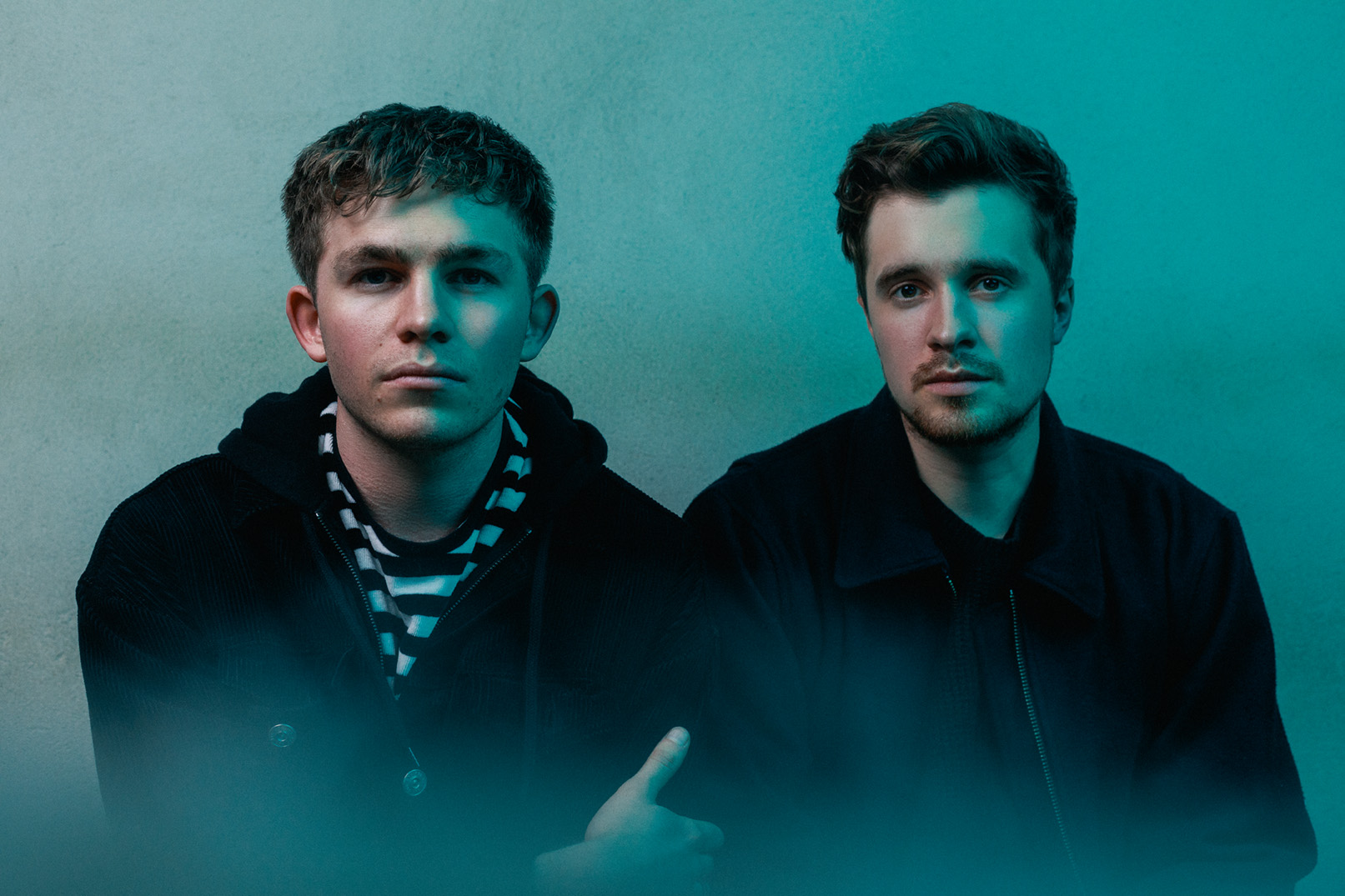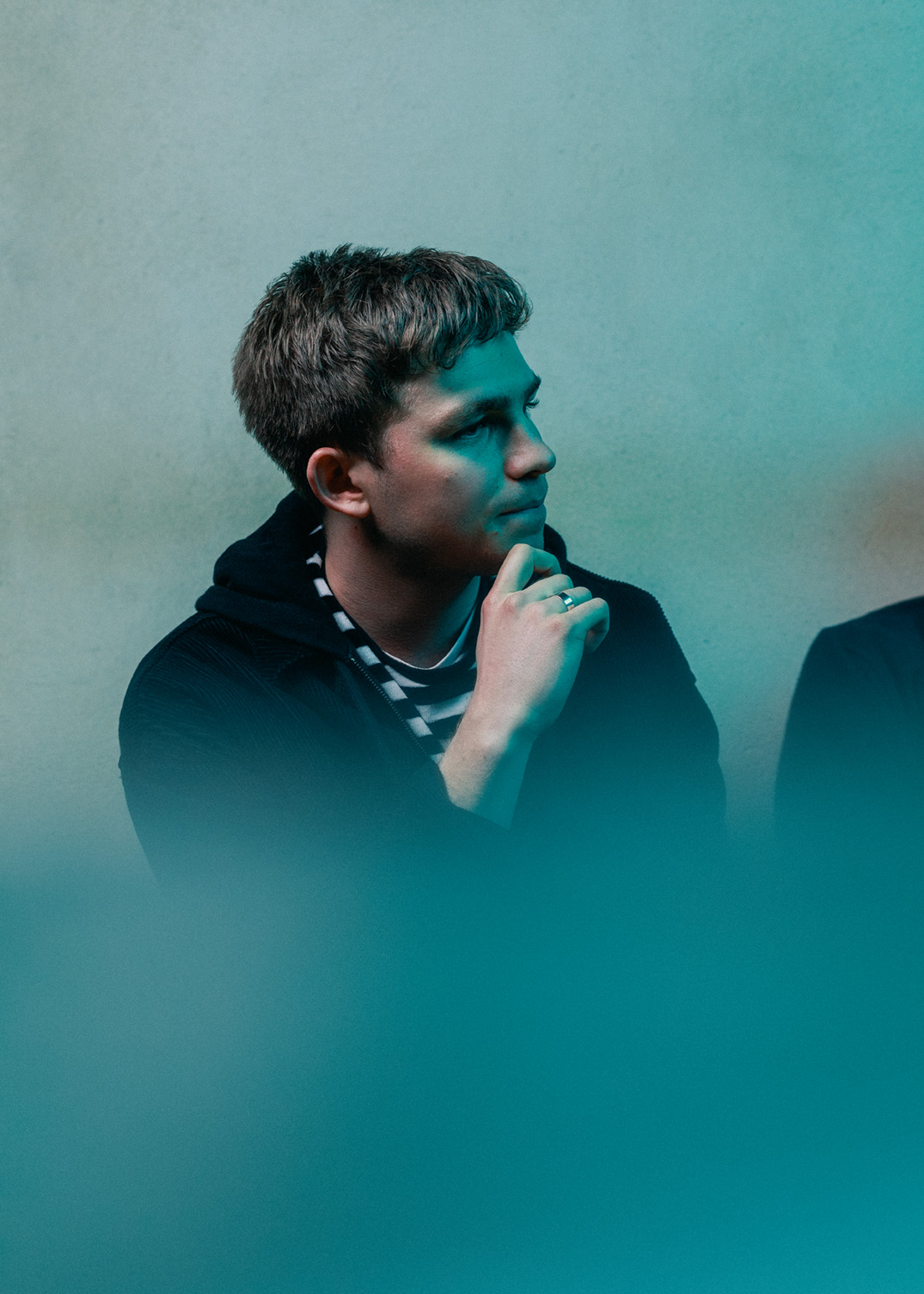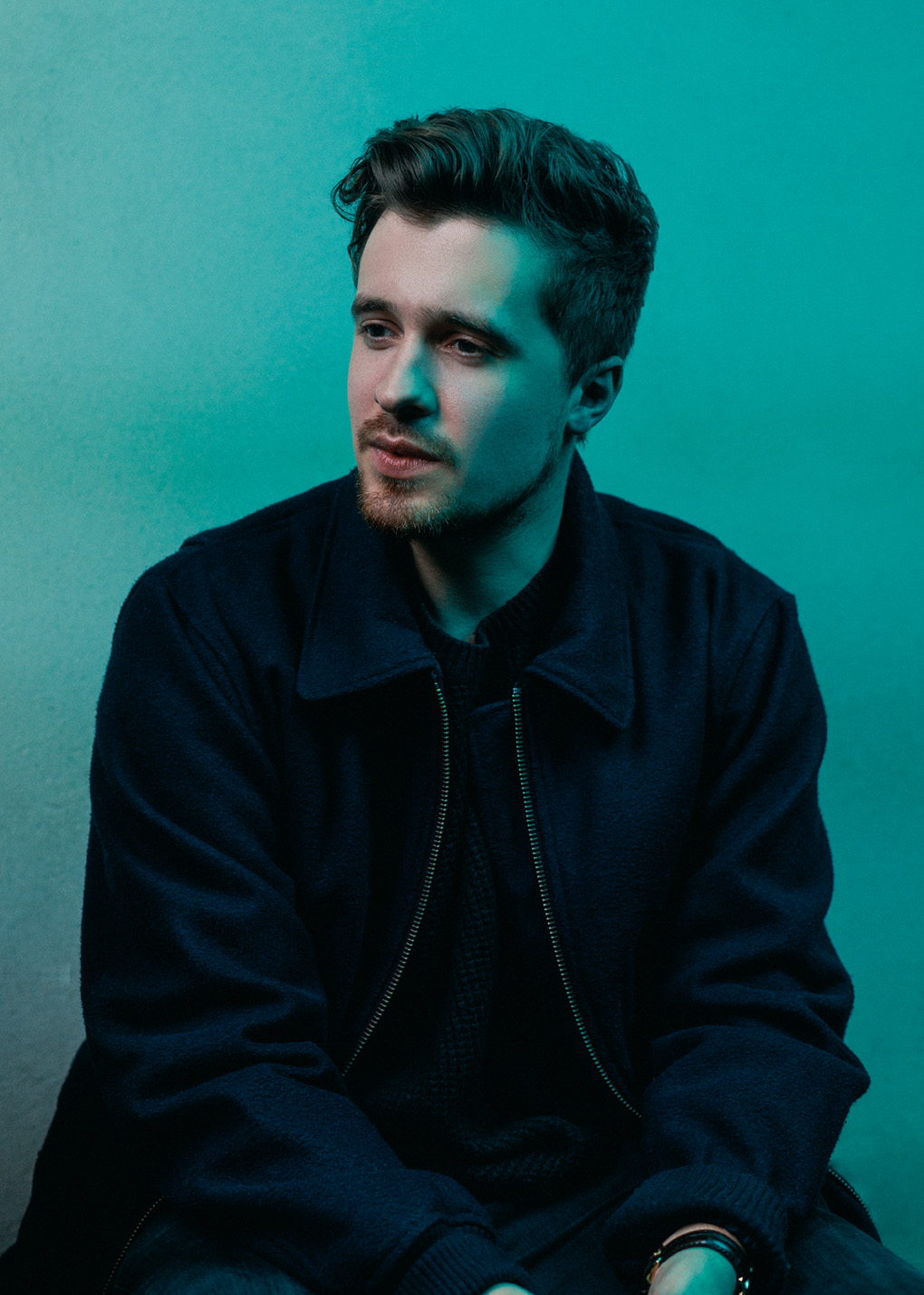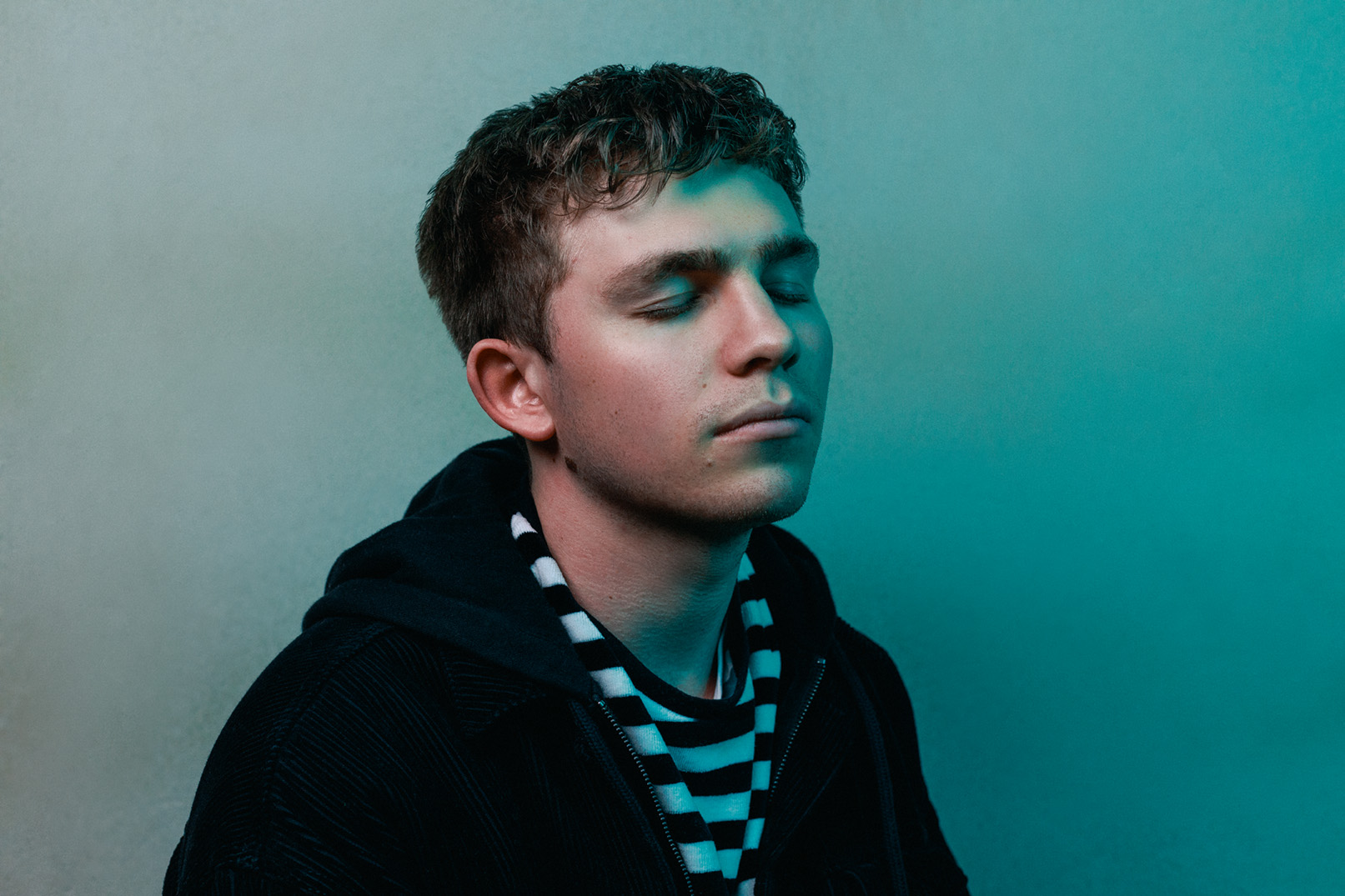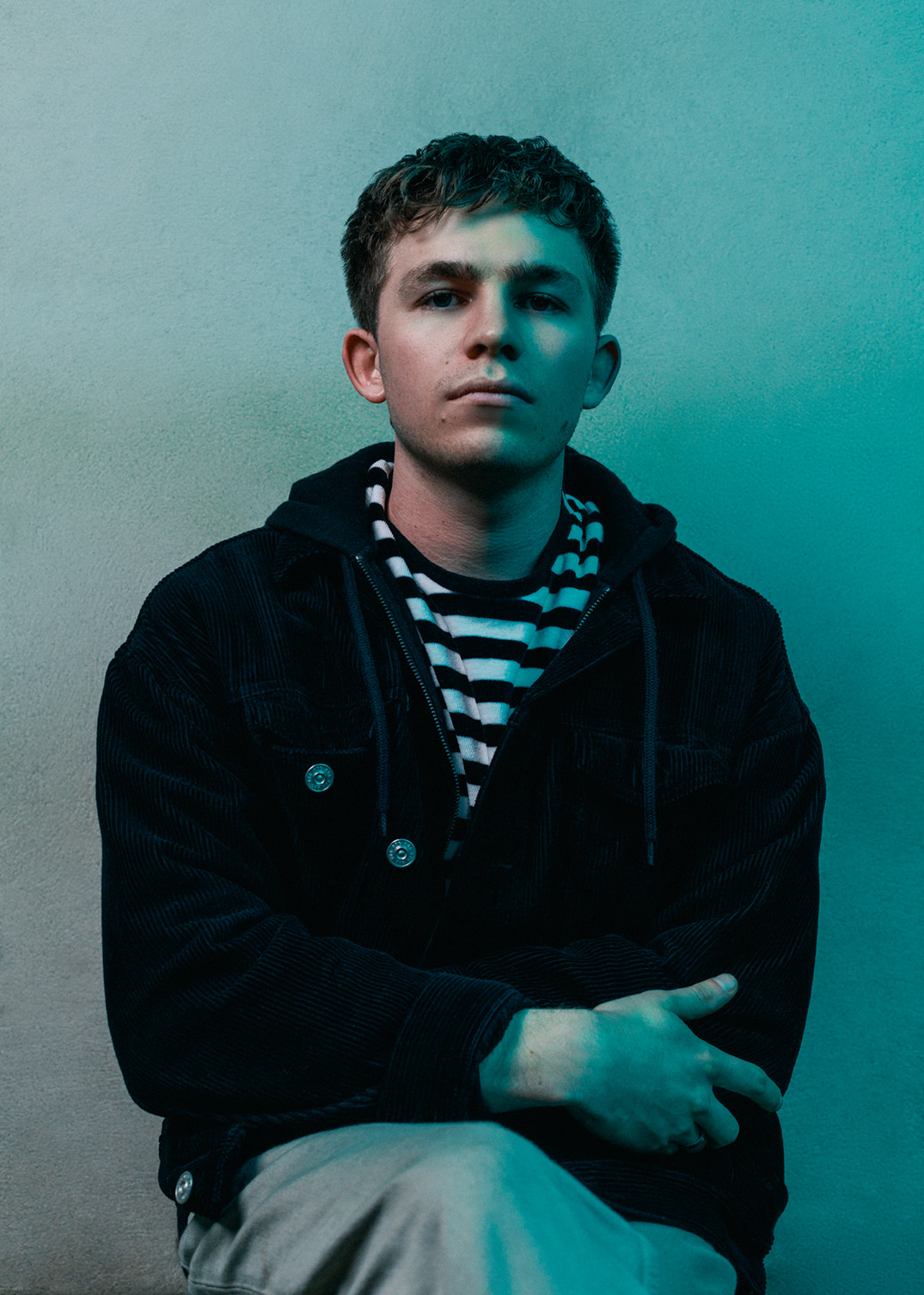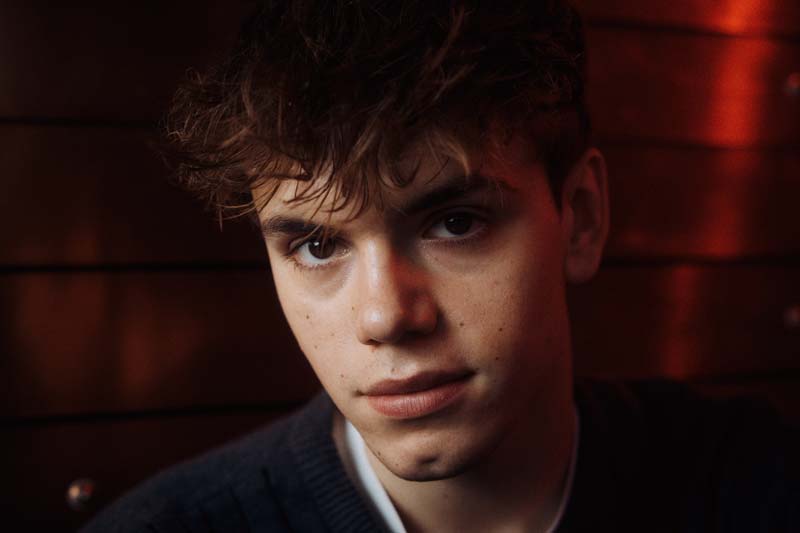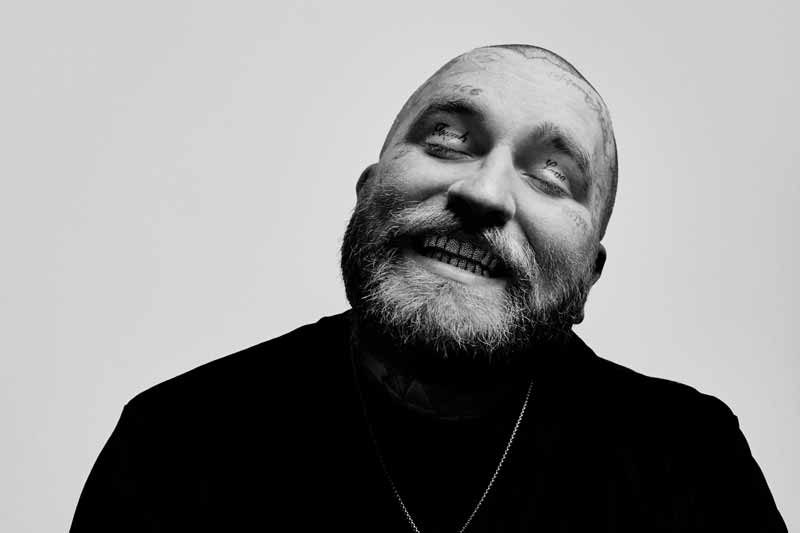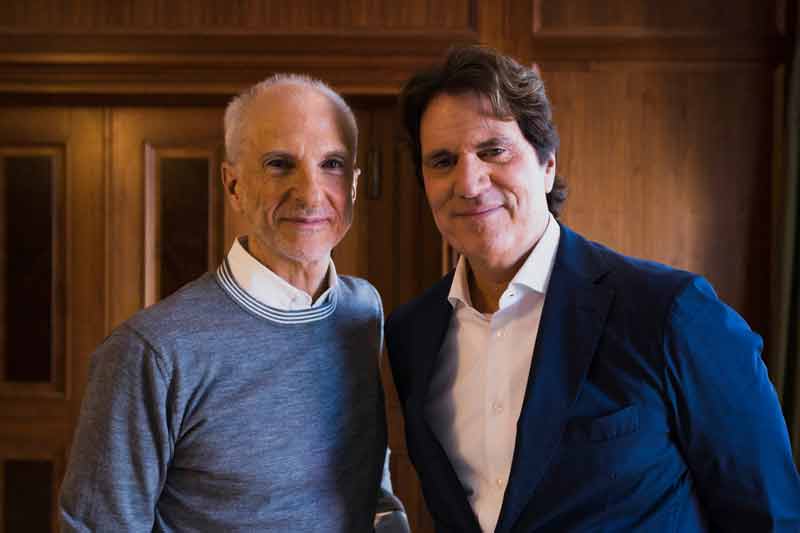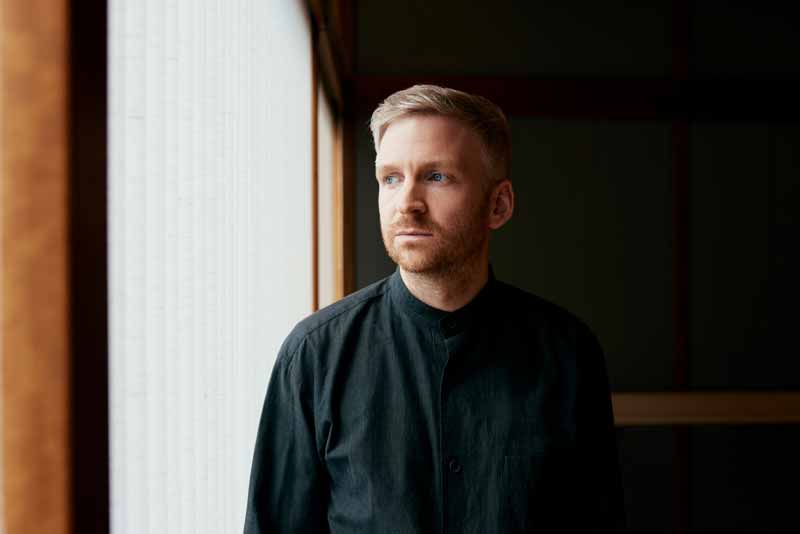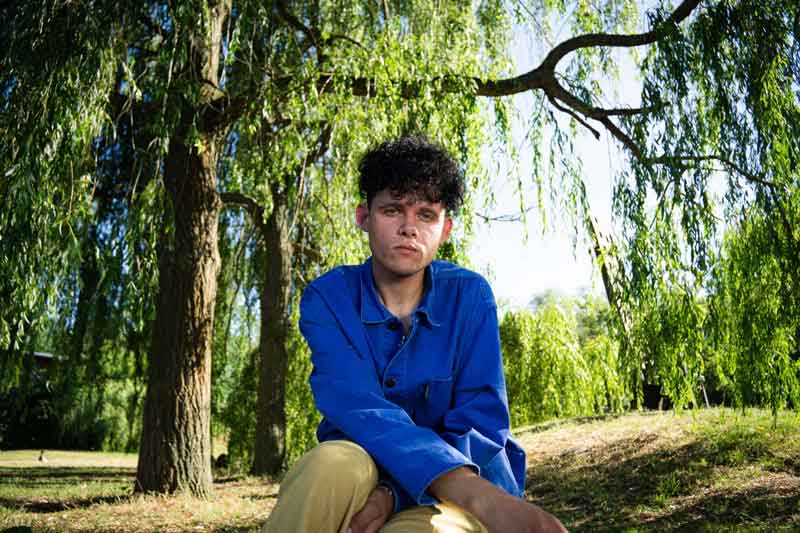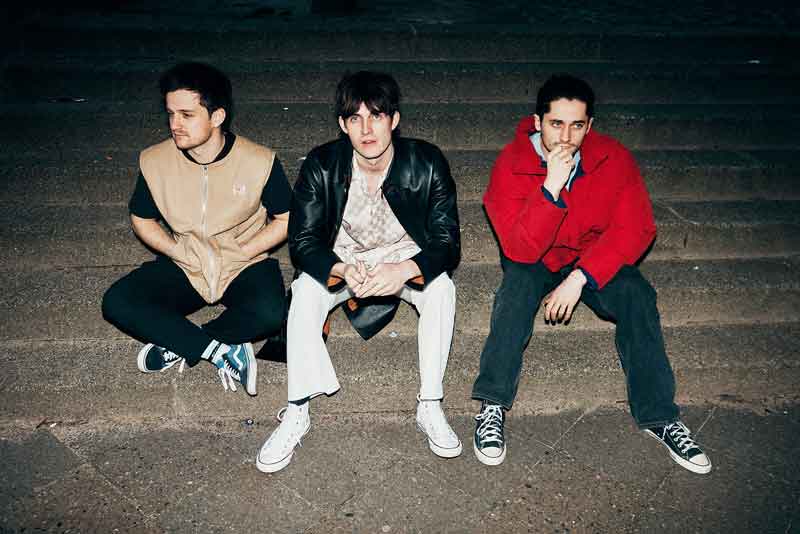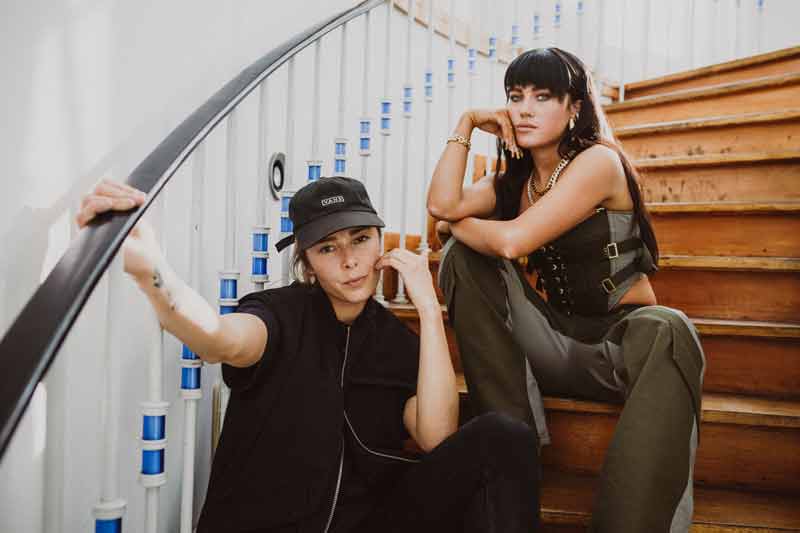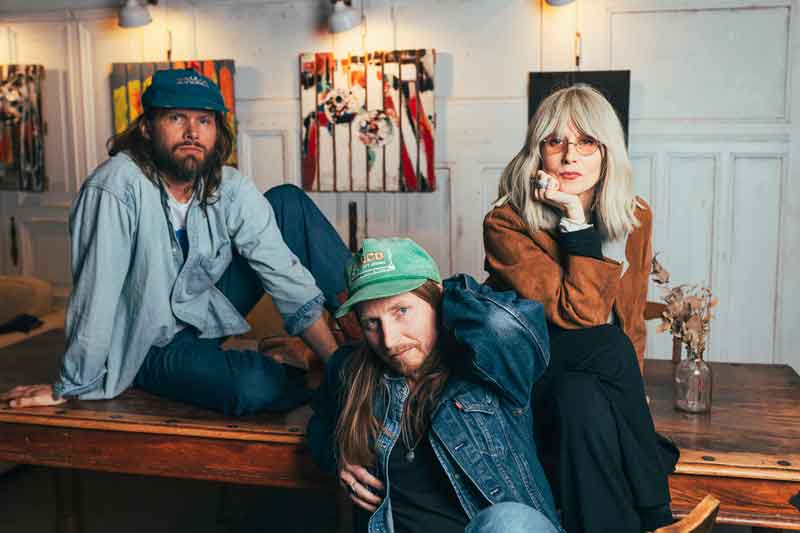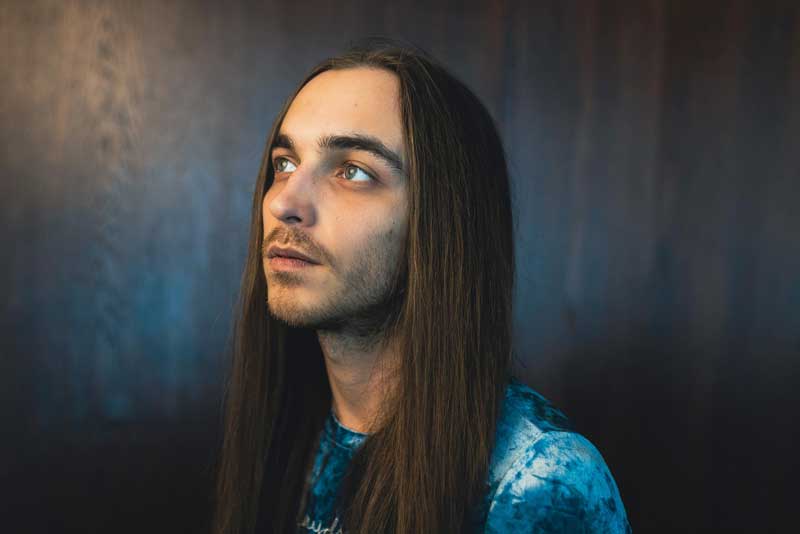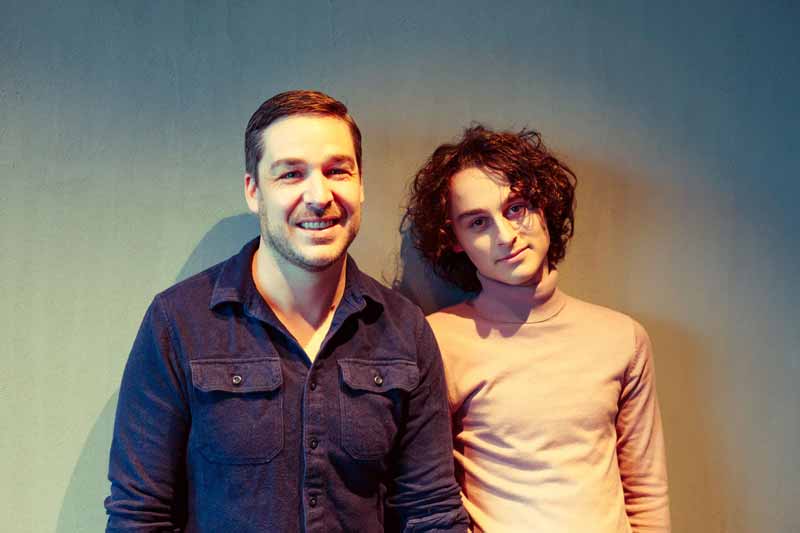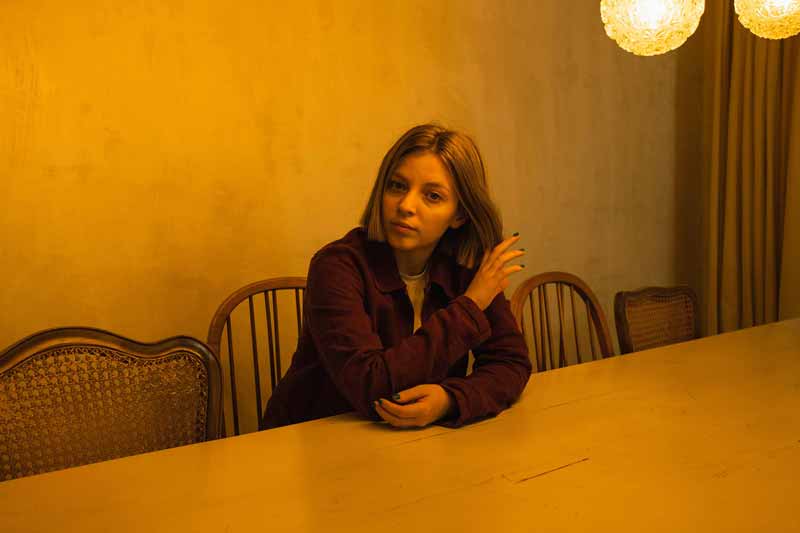Interview — Aquilo
Pretty Normal People
Aquilo’s Ben Fletcher and Tom Higham describe themselves as “pretty normal people”. But as ordinary these two guys might be, as extraordinary and touching is their music. An interview about friendship and the meaning of normality—and how to make music out of it.
9. Mai 2018 — MYP N° 22 »Resistance« — Interview & Text: Jonas Meyer, Photography: Maximilian König
You have to imagine following: Two very talented young musicians live in a 1,500-people town in the northwest of England, even live on the same street—and how do they get to know each other? On Soundcloud. One of them, Ben Fletcher, released a song there about six years ago. And the other one, Tom Higham, became aware of it, contacted his near-neighbor and invited him to come over and make some music together. After the first encounter in real life, it quickly became clear to both that there could be something in common in music.
What followed was the wonderful story of Aquilo, whose soulful and touching music reached—from a small town called Silverdale—the ears and hearts of millions of people around the world. Their first joint song “You There”, which they—who would have thought it—released on Soundcloud, spread across the globe at lightning speed and today counts almost two million clicks on this platform alone. By the way, a success that they had not expected at all and which initially irritated them, as they told our colleagues from Stereogum in mid-2015.
Soon, Aquilo started touring the world and played in countless countries. After a while, the two artists decided to move away from Silverdale because of the music. Their first stop was Manchester, then they moved to London. In 2017, Ben and Tom finally released their first album “Silhouettes”. The record was accompanied on YouTube with their “Silhouettes Trilogy”, a series of three music videos about the lives, dreams, and fears of ordinary people in northern England.
A few days ago, Aquilo released their second record called “ii”—or rather the second part of it, as the first half of the album they had already published at the end of last year. The new record’s song “Who are you” alone is so wonderful that it would be worthwhile just to talk and write about it. But that wouldn’t embrace at all the musical world that these guys from Silverdale have been created—because there is so much more.
Jonas:
Three years ago, you said in an interview with Stereogum that the positive reaction to your music “doesn’t really make sense”. Are you able to deal with it in the meantime?
Ben:
That’s humble, isn’t it? I think what we were trying to bring across there is that it’s surprising that so many people like our music. It’s incredible.
Tom:
It’s something that we never expected. Any praise we get from anyone is the best fame for us. We are happy about that because we don’t expect any praise.
Jonas:
A couple of years ago, you also said that you never intended in playing your music live. Today, after you’ve travelled the world and have played so many concerts, how would it feel to cut off this live-part of your music?
Ben:
I was thinking about this today! We don’t tour that often and when we are not on tour, we get this itch, we get this need to go away and gig. Without touring, I’d probably get quite frustrated. Making music in the studio is fun—but getting out and actually seeing people physically enjoying our music is a completely different feeling—I’d say it’s a better feeling.
Tom:
It’s the perks of recording music, you get to play it live. We don’t actually tour that much but when we do it’s really amazing. It’s a real change for us, especially with a new setup. I think a lot of things have changed with us recently. It has progressed, hopefully in a good way—it’s a lot more exciting.
»We wouldn’t have been able to relate to a music video that had super whacky people starring in it.«
Jonas:
Last year you published the “Silhouettes Trilogy”, a series of three music videos showing regular people with regular problems. Why was it so important to you to underline the meaning of normality?
Ben:
We wanted the videos to be something that people like. We wanted it to be a proper story, something we can relate to. And we are pretty normal people, I’d say. We wouldn’t have been able to relate to a music video that had ‘super whacky’ people starring in it. So, the video is quite basic and normal; it could have been about any of our friends. It’s about the music, that’s the thing.
Jonas:
How did you come across the people who feature in the “Silhouettes Trilogy”?
Ben:
We weren’t able to attend the video shoot because we were touring through America when it was being filmed. So, we didn’t get to meet these people. We actually never really got to know them that well, but we spent an evening with some of them quite a while after when we went to the premiere. So that was all about the director. But it actually had something quite nice of not being there—they were able to do what they wanted to put in. We had already put our input in it and it was nice for us to leave them do it.
Jonas:
In the fourth video titled “The Story of Silhouettes”, you say there was a point in your lives when the comfort of home “brings boundaries” and you decided to leave Silverdale and move to London. What boundaries did you mean?
Tom:
I was referring to the aspects of recording music. At that time, we were recording at my dad’s basement in my house in Silverdale and we wanted to get out. I just came back from university and I was working in a factory, then I was working in a coffee shop and I just wanted to make music full-time. So, this was the opportunity! We got signed by a record label at that time and it was crazy. We actually moved to Manchester first, where we got a studio and bought new equipment.
Ben:
Eventually we had to move to London. At home, there are boundaries like being surrounded by friends and often it can be distracting, especially in Manchester. It’s just really nice to detach yourself from what you’re writing about. When we moved to London, it all just seemed to be the right process. It was a lot easier and quicker as well! We were quite focused.
»It’s quite comforting that I can go home, not telling anyone about it, and then I can just call someone and they are there.«
Jonas:
In your song “Close to Magic”, you give a very intimate look into your personal lives back in Silverdale. What does coming home mean to you in times when you’re constantly travelling around the world?
Tom:
For me, home is one of my favourite places. Whenever I go home, it’s kind of weird—all my friends are still there and they are still doing the same things. Not that there’s anything wrong with that, it just kind of fascinates me. It’s quite comforting that I can go home, not telling anyone about it, and then I can just call someone and they are there. They haven’t moved, they are all doing the same thing. It’s really nice and feels like a really safe place. That’s for all that part of England where we’re from.
Jonas:
By now, millions of people have watched your videos and listened to your songs. Why do so many people have such a strong connection to your music?
Tom:
I don’t know! I was at school at that time when we had recorded our first song “You There”. Ben came to my house after school one day and we checked our Sound Cloud account—it had like 5,000 plays, that was crazy!
Ben:
We were freaking out. And then, a few years later, it has come to millions. I don’t know. We are just happy with how many people like our music. It’s weird.
Jonas:
Your song “Who Are You”, for example, is especially touching. It seems like you give a lot of yourself into this music. Do you sometimes think you give too much?
Tom:
I think that song especially means a lot. We met these new people after going through bad breakups at that time, and for me, the song is very much about that. And I don’t see it as a negative thing at all, I actually think it’s one of the most positive songs we’ve ever made. It’s a celebration of happiness, in a way—it means a lot to me.
»Making music is basically all we do—and maybe going to the pub on a Thursday or Friday.«
Jonas:
“Who Are You” is part of the “ii Side A” that you released in November 2017. This EP is the first half of your new record “ii” that is going to be published on the May 4th. Why did you decide to release the first part of the record half a year before the rest? Is there a difference between “Side A” and the rest of the album?
Tom:
That’s a funny question because there never was meant to be a difference. But I feel there might be a tiny bit of a difference.
Ben:
Tom and I spent a hell lot of time making music. It’s basically all we do—and maybe going to the pub on a Thursday or a Friday. And I think with that, your sound is developing all the time. You can’t consistently have one sound. Well, you can, but we always find new sounds and new influences quite quickly. So, we made the first half of the record and while we were in the studio and getting it mixed, we were still working there. It’s been just two months since we wrote the first half and the sounds already slightly started to change. It all definitely feels concise. I think you can tell that we wrote the second half in a somewhat different way to the first half.
Tom:
I think there’s a slight bit more energy in the second part.
Jonas:
So, the second part went to different musical directions?
Ben:
Yes, I think so! We were listening to different musicians whilst we were making the second half.
Tom:
You can hear that. We’re always evolving musically, like everyone who makes music. You’re always influenced by new people. And this album is kind of special to us because it gave us the chance to actually produce everything ourselves. On the first record, we had a couple of other people involved like Ólafur Arnalds and those guys who helped us in production. It’s been a massive learning curve since that first album! We had the chance to do everything ourselves now. And it makes us feel very close to it.
»Well, we share a bank account, we live with each other—it’s like a marriage!«
Jonas:
You got to know each other five years ago and started making music together. How would you characterise the friendship between you?
Ben:
Well, we share a bank account, we live with each other—it’s like a marriage!
Tom:
The only difference between marriage and what we have now is that we sleep in different beds—that’s literally it! Sometimes we even have to sleep in the same bed, for example in a hotel room. We’ve become like best mates! We also live with our mate Harvey Pearson, he’s a photo and video artist and films a lot of our things. It’s weird, because we didn’t really know each other that well before we started writing music together. You know, we lived across the road and there’s a little bit of an age gap between us, so we didn’t really hang out with each other. When Ben came over, it was just for music, constantly. And a couple of days after our first song “You There” was released, when we got to meet managers and so on, things started to happen with us.
Ben:
It’s like a friendship that sort of grew just without thinking of it. Initially, we were just working with each other. And also, we’re writing songs on a quite personal level, so I suppose we know each other.
Jonas:
Where do you find each other in music?
Tom:
In terms of song-writing, one song will mean a lot more to Ben and one song will mean a lot more to me. Or it might be about a situation that Ben has gone through. That’s kind of how we do it. There are some songs that we don’t write like that, but more or less, it’s about one or the other’s experiences.
Jonas:
We already talked about the fact that many people love your music. Do you also have musical heroes, people that create music that you really love?
Tom:
There’s massive songs from Explosions in The Sky that I love! That’s kind of progressive rock that I really like. I think it kind of like progresses from rock ‘n’ roll. But I also like stuff from the Dust Rays, Toto, and all these guys.
Ben (laughing):
Toto?! Haha, I love it!
Tom:
Yeah.
Ben:
I was in a grunge band before, with some of my mates in my village. I had an obsession with Kurt Cobain. I even studied him at school. There was this project where we spent months looking into Kurt Cobain and reading books about him. We probably wouldn’t know these things, because we’re just too young. I mean, I was born the year after he died! I was so fascinated with the whole grunge era. And Pearl Jam as well, I was obsessed with Eddie Vedder. That’s weird because it’s way before my time. My dad was massively into Steely Dan. I actually got to see them in New York! We were playing at a festival there, two shows in one day within four hours. But then my mum called and told me, “Oh my god, Steely Dan is playing in New York”! So, our manager Hamish made a phone call and was like “Mate, I’ve got free tickets!” I played our show, got off the stage, went into a taxi, straight to Steely Dan, watched four or five songs, front-row seats, and then had to leave back to our venue, got on the stage and played the second show. It was the best day of my life!
Jonas:
Last year, we met Australian singer-songwriter Kat Frankie for an interview. She once said, “people that write sad songs are a little happier”. Are you a good example for that?
Tom:
For me, sad songs are kind of moving and very atmospheric. And I’m not talking about Adele songs, I’m talking about Explosions In The Sky and these guys. The chords are quite minor in a lot of ways. That doesn’t make me sad, it’s the complete opposite in fact.
Ben:
I get more feeling from a sad song than from a happy song. My favourite albums are the ones that make me sad. Even when I’m really happy, I enjoy listening to them. But when I’m really happy, I don’t want to make music by myself. If I’m sad, I can go and write about it. But when I’m happy, I just want to carry on what I’m doing.
Photography by Maximilian König
